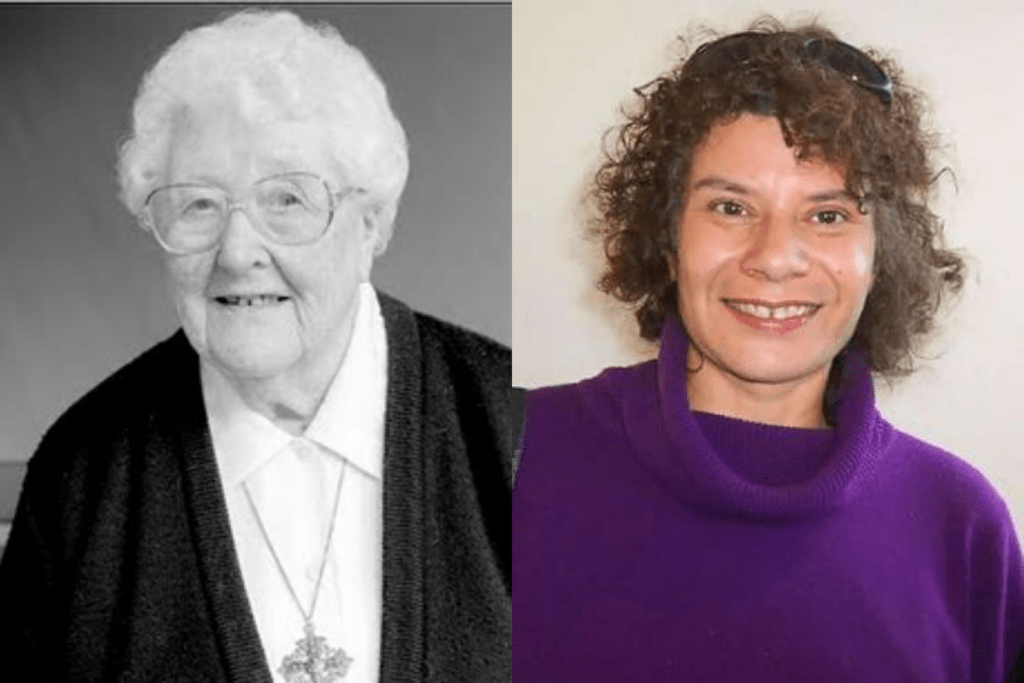What do Elizabeth Alfred, Lisa Bellear, and Kath Williams have in common?
Apart from all being women, none of them received an Order of Australia. We don’t know why. We don’t know if they were nominated or rejected. And if they were rejected, even their nominators don’t know why. The letter informing them will say something like ‘The Council recognises and values all types of service…however an award was not recommended on this occasion’. No further feedback is provided, even when requested.
Were they difficult women? Was it the school they went to? Was it their name not being John? Or were they not nominated because the Order of Australia is seen as just another establishment club, where many more members are men? No reasons are given, so we just have to surmise.
Elizabeth Alfred wanted to be an Anglican priest but was limited to head deaconess, a role for females in the church. Active in the campaign for women’s ordination from the beginning, she pestered the Archbishop of Melbourne in the 1970s, arguing that she had all the qualities for priesthood, other than being a man. Eventually in 1992, at the age of seventy-eight, she was ordained. But, unlike many of her male colleagues, this trail-blazing church leader never received an Order of Australia.
Lisa Bellear was a poet, photographer, activist, spokeswoman, dramatist, comedian and broadcaster. She was a Goernpil woman of the Noonuccal people of Minjerribah (Stradbroke Island), Queensland. A prolific photographer, her work was exhibited at the 2004 Athens Olympic Games. Even though she died too young at the age of forty-five, she had been awarded the Deadly Prize in 2006 for her outstanding contribution to literature with the play The Dirty Mile: A History of Indigenous Fitzroy. But she never received an Order of Australia.
‘Blessed be the Troublemakers: we just need more of them’.
This was the headline of an article by journalist Jenna Price in 2018. She was writing about women like Julie Bates AO, a long-term activist improving the safety and conditions of sex workers, who had been made an Officer of the Order of Australia. This was a happy surprise, given that other activist women, with achievements recognised internationally in such areas as human rights, peace and security, have had their nominations for an Order of Australia rejected. Too politically difficult perhaps?
Helen Lewis, author of Difficult Women: a history of feminism in 11 fights, understands the importance of troublemakers in changing society for the better. We cannot strip politics – and therefore conflict – from the narrative of women’s history.
Honour a Woman, a movement started in 2017 to redress the appalling lack of women awarded Australian Honours, believes history is skewed if we do not recognise women: difficult or not. But since 1975, when the Australian Honours were established as a sign of independence from Britain’s Imperial Honours, nominating and awarding women has been clouded by the same structural issues that result in gender inequality in employment and leadership.
Helen Lewis tells us: ‘Changing the world will be difficult. It will feel like a struggle. You must accept the size of the mountain ahead of you, and start climbing it anyway.’
Kath Williams was one of these climbers. She fought hard for equal pay for women, and died in 1975, just as the Order of Australia was replacing the old Imperial Honours. ‘Better a nomination than an obituary,’ Honour a Woman says.
Women are considered difficult because they are complex, political and sometimes invisible. But during the summer bushfires and the COVID19 pandemic, women have borne enormous domestic burdens while showing tenacious leadership, particularly in healthcare, local government and high-level operational roles. The Australian Honours provide just one mechanism for recognising their inspirational contribution to society.
Recognition is difficult for women in a practical way. Since nominations for the Order of Australia must be confidential – and we wonder why! – online biographies are a likely source of information. But fewer than 20 per cent of the 1.6 million biographies on Wikipedia are about women. While more women are on LinkedIn, accessing detailed information on their achievements can be challenging.
Donella Meadows identified three increasingly sophisticated levers for change: practical (eg. metrics), structural (eg. rules and power) and cultural (eg. goals, beliefs and values). Over recent years, Honour a Woman’s targeted advocacy has led to an increase in the number and range of women nominated and awarded Australian Honours. But without embedding structural change, these improvements will not stick. Ultimately, we must achieve a cultural change, where conceptions of merit include better understandings of difficult women and the rich plethora of women’s contributions.
It is now 2020. Women still receive less than 50 per cent of the Australian Honours. From 1975 to 2020, 48919 men (71%) and only 19,958 women (29%) were nominated for an Order of Australia. The range of inspirational female role models we have lost to history, through these disproportionate numbers, is tragic.
So while the Governor General makes the final decision, Honour a Woman is calling on states and territories to embed processes to support nominations of women for the Order of Australia. And we also want to see women’s achievements viewed through a wider prism, with more difficult women honoured in Australia.


